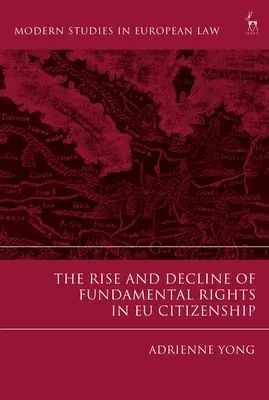Adrienne Yong
(Author)The Rise and Decline of Fundamental Rights in Eu CitizenshipHardcover, 21 March 2019

Qty
1
Turbo
Ships in 2 - 3 days
Only 1 left
Free Delivery
Cash on Delivery
15 Days
Free Returns
Secure Checkout

Part of Series
Modern Studies in European Law
Print Length
248 pages
Language
English
Publisher
Hart Publishing
Date Published
21 Mar 2019
ISBN-10
1509917934
ISBN-13
9781509917938
Description
Product Details
Author:
Book Format:
Hardcover
Country of Origin:
US
Date Published:
21 March 2019
Dimensions:
23.62 x
15.75 x
2.03 cm
ISBN-10:
1509917934
ISBN-13:
9781509917938
Language:
English
Location:
New York
Pages:
248
Publisher:
Weight:
612.35 gm